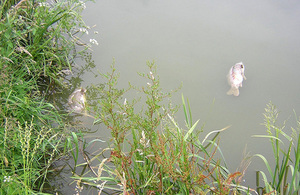Thank you Madam President. And thank you David, and Gorgui, for your briefings.
And I want to start by complementing David and the whole UNMISS team for the steps that you have taken to enhance the Mission’s ability to fulfil its mandate despite the hostile circumstances in which it operates.
The situation in South Sudan is dire, but I want to recall what we, the members of this Security Council, agreed to on the 23rd of March in our Presidential Statement. We called for an immediate ceasefire by all parties; we called for steps to be taken to allow life saving assistance to get to those in need. We called for the immediate removal of obstacles to UNMISS and the deployment of the Regional Protection Force. We also gave our support to joint UN, African Union and IGAD efforts to bring the parties back to the Peace Agreement. And we said we would return to these benchmarks and reassess. So let’s do that.
The lack of progress since that Presidential Statement a month ago is deafening. Fighting and violence in South Sudan has never been so widespread. Events that unfolded in Wau earlier this month are a distressing indication of the apathy that parties to the conflict have towards achieving peace by political means. UN reports detail clashes between the SPLA and the opposition which resulted in the SPLA seeking violent retribution against civilians in a community they believed to be in support of the opposition.
It’s always difficult, Madam President, to deliver aid in a highly insecure environment like South Sudan. But let’s be clear, it’s not only the presence of conflict that impedes the ability of humanitarian workers to address the ever worsening food situation. It’s the way in which the conflict is conducted; namely, the fact that it contravenes International Humanitarian Law.
International Humanitarian Law was breached with the murder of three World Food Programme employees in Wau. And this is by no means an isolated incident. As Gorgui noted in his briefing, the murder of these WFP employees adds to the toll of eighty humanitarians who have been killed in South Sudan since December 2013. This must stop.
Also unacceptable is the news that the Government of South Sudan has detained without charge, a WFP employee. We call on the Government of South Sudan for his immediate and unconditional release and urge other member states to join that call.
The violence in Wau is also an example of the unacceptable and chronic obstructions placed upon UNMISS by the Government of South Sudan. Despite repeated attempts UNMISS was prevented from patrolling in Wau and thus unable to protect civilians. A continued lack of Government cooperation has also prevented meaningful progress on the deployment of the Regional Protection Force.
Madam President, this Council has heard time and time again of the shocking impact that this conflict is having on the world’s youngest nation. One example, is the fact that at least one in every four South Sudanese has now been forced from their homes since the outbreak of conflict in December 2013. What a damning statistic.
And despite multiple statements made in this Council and efforts by the UN, African Union and IGAD to bring the parties together, we have collectively failed to bring about an end to this conflict. We are further from the IGAD Peace Agreement than ever. Yes, we have all pledged to do more. Yes, the Government of South Sudan has time and again promised peace. But the people of South Sudan are fed up of pledges and fed up of promises. They need action. So we strongly encourage the AU, IGAD, and the UN to build on their commitment to work together by developing a clear, joint, plan of action to solve the ongoing crisis in South Sudan without delay.
And in conclusion, Madam President, the question we each need to ask ourselves as we walk out of this room is how much further are we prepared to let the situation deteriorate on our watch? My answer is no further at all. And with this in mind I call on regional countries to avert the suffering in their backyards. I remind fellow Council colleagues that it’s incumbent on us to use every available tool to pull South Sudan back from the abyss. Dialogue is needed. But so is pressure. An Arms Embargo would prevent further devastation and rearming when the rainy season inevitably slows the fighting. Targeted sanctions would remind those in power that a return to peace is the right alternative to rape and killing of civilians.
We hear month after month the same lack of commitment to peace from all parties. We owe it to the people of South Sudan to end this horror and to secure a lasting peace.
Thank you Madam President.
